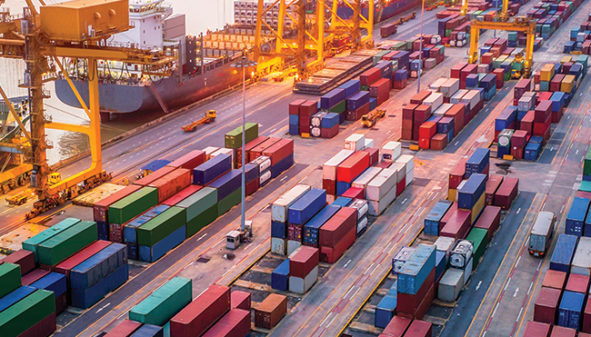Ecorys supports European Commission with third Mobility Package
Ecorys supports European Commission with third Mobility Package
On 17 May 2018, the European Commission launched its third mobility package: Europe on the Move III. Ecorys and its partners supported the Commission over the past two years with four studies to develop its new policies to make Europe’s transport and mobility safer, cleaner and connected.
Digitalisation in the freight transport sector is still little advanced. About 99 % of cross-border transport operations on the territory of the EU still involve paper-based documents at one stage of the operation or another. There is a fragmented legal framework setting inconsistent obligations for authorities when accepting electronic information or documents and permitting different administrative practices to implement them. In addition, there is a fragmented IT environment with a large group of non-interoperable systems/solutions for electronic transport information and documentation exchange. The Commission proposes policy measures to overcome the lack of uptake of digital technologies in the area of transport documents by setting a full obligation for Member State authorities. This is in order to accept regulatory cargo transport information or documentation made available electronically with a partially harmonised implementation of solutions for regulatory information communication exchange between businesses and authorities in the various transport modes. This will bring significant benefits for the transport sector in terms of reduced administrative costs and for European society as a whole as a result of positive environmental impacts. Ecorys, in cooperation with our partners Grimaldi Studio Legale and the Institute of Shipping Economics and Logistics, provided an impact assessment support study as the basis for the European Commission’s impact assessment in which the current barriers in the area were determined and the impacts of policy measures were analysed.
Another main part of the third mobility package aims to further strengthen maritime safety. Motivation for improving maritime safety are several major maritime accidents involving oil tankers, such as the Erika and the Prestige, leaking vast amounts of their cargo into the sea. To ensure maritime safety, the International Maritime Organisation (IMO) has adopted multiple conventions. These conventions introduce obligations for States regarding ships flying their flag. Obligations relate to the technical status of the ships as well as the connected safety measures. In case a vessel is involved in a maritime accident, the responsible State is obliged to conduct an independent investigation. Based on the investigation, new safety measures can be adopted. Although an international framework is in place, maritime safety is not always guaranteed and multiple vessels do not comply with the minimum safety standards. To ensure that EU Member States fulfil their obligations as flag state, the EU has adopted several Regulations and Directives. Examples are the Flag State Control Directive (2009/21/EC), which introduces the Flag State responsibility for Member States, and the Accident Investigation Directive (2009/18/EC), which introduces the obligation to establish an independent accident investigation body. Such a body needs to conduct the investigation in line with the international standards. In 2016 Ecorys, has evaluated both Directives. Aim of the evaluation was to assess whether the Directives are still relevant, what their effects on maritime safety have been (has the situation improved?) and whether the execution of the Directives is done efficiently.
Under Ecorys’ management, our partner Cowi provided two Impact Assessment support studies on (i) establishing European Maritime Single Window environment and on (ii) road infrastructure safety management & minimum safety requirements for road tunnels in the trans-European network.



